Saintseneca's Highwalllow & Supermoon Songs, out now via Lame-O Records, presents 21 songs organized around a singular concept: a landscape orbited by two moons. The first ten tracks comprise the Highwalllow landscape itself. The remaining eleven exist on two satellite moons—Viridian Moon (tracks 11-15) and Cinnamon Moon (tracks 16-21). Cinnamon Moon will only appear on vinyl and as a digital purchase, bypassing streaming platforms entirely. I haven't been this excited about two moons since I was very young, watching Luke Skywalker on Tatooine in Star Wars.
The structure reflects Columbus, Ohio-based multi-instrumentalist and songwriter Zac Little's emergence from a prolonged writer's block. The songs that arrived felt as if they were 'found' rather than composed, pulled into being by forces outside his control. Says Zac in the press release, "I wanted this album to reflect that—some songs were found on the landscape, others were found on two moons, orbiting that landscape like satellites, disparate pieces pulling on each other, creating a world of song."
There are so many songs on the album, with lovely effects and arrangements such as the warm channel of the acoustic guitar, especially when listening on headphones to songs like "Escape Artist" and "Vanishing Point," From "Smoke Punching," "it's always gonna ache every time it rains" is perfect for this time of year, and especially at my age; I can relate! Being Irish, there's a familiarity to me with some of the songs, as we have a long relationship with folk music. Songs like "A Long Winter" feel like a folk song I would have grown up with.
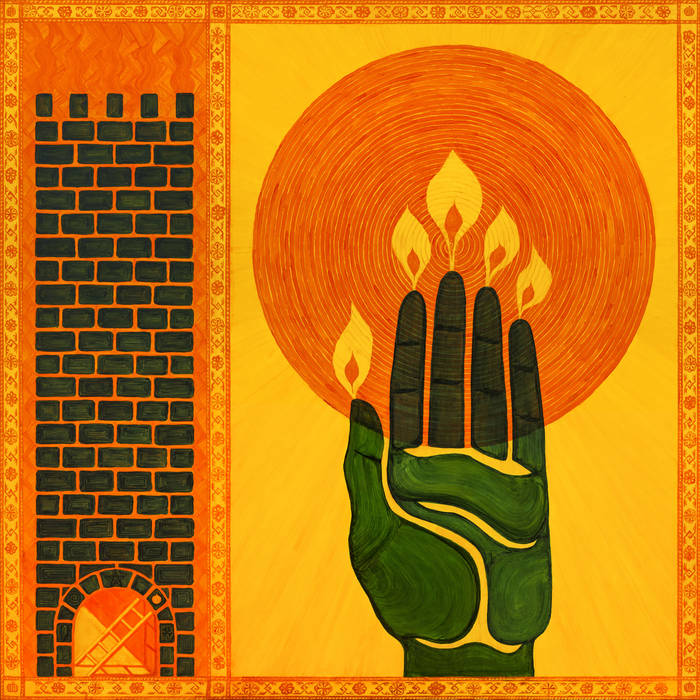
I asked Zac how long it took all these songs to percolate.
"A long time! The last thing that we released was in 2018, but I went through kind of a dry spell for probably about two years or so. Then once I kind of engaged in the process of fully being in this record, it took five years of just literally all day, every day in it, almost."
Pillar of Na was their last album, for a collective that has changed lineup multiple times. The creative process can be challenging, and I asked Zac if it was difficult to keep riffs, tunes, ideas, and threads together thematically. Or was he working song by song as they came out?
Zac patiently explained, "It's my experience that those things reveal themselves. I try to just keep an open mind and maintain some level of sensitivity to what's going on. But usually, the connections and themes begin to emerge on their own organically. Then it's just a little bit of finessing on my part to maybe exaggerate those or accentuate them so they're maybe a little more apparent to me."
Their 2014 Dark Arc album was a favorite record of mine. It's got so many little gems on there, including "Happy Alone" and "Fed Up With Hunger." I thought their Tiny Desk concert in support of that record was one of the most memorable performances from the NPR show. That album is a little moody, but it is that compelling mix of uplifting melodies and lyrics that are a little sad, which hooks the listener.
Saintseneca also have this wonderful knack for harmonies, with a glorious mix of Caeleigh Featherstone’s voice combined with Zac's. This current record has so much going on there, the lead singles are all different tones and tempos: "Infinity Leaf Clover," the booming "Sweet Nothing," and "May Day," full of autumnal sounds and witty lyrics, to a heavier, noisier apocalyptic dad rock track as "Bitter Suite."
I was thinking before we started to talk about the genre of indie folk music, that it would seem a simplification of what they have produced, between the wordplay, the emotion, the lyrics, musicianship, to label it ‘indie folk’ or even ‘folk rock.’ There are prominent bass guitar lines, even a little bit of brass coming in, and they stray a ways into country territory, as well as even some electronica.
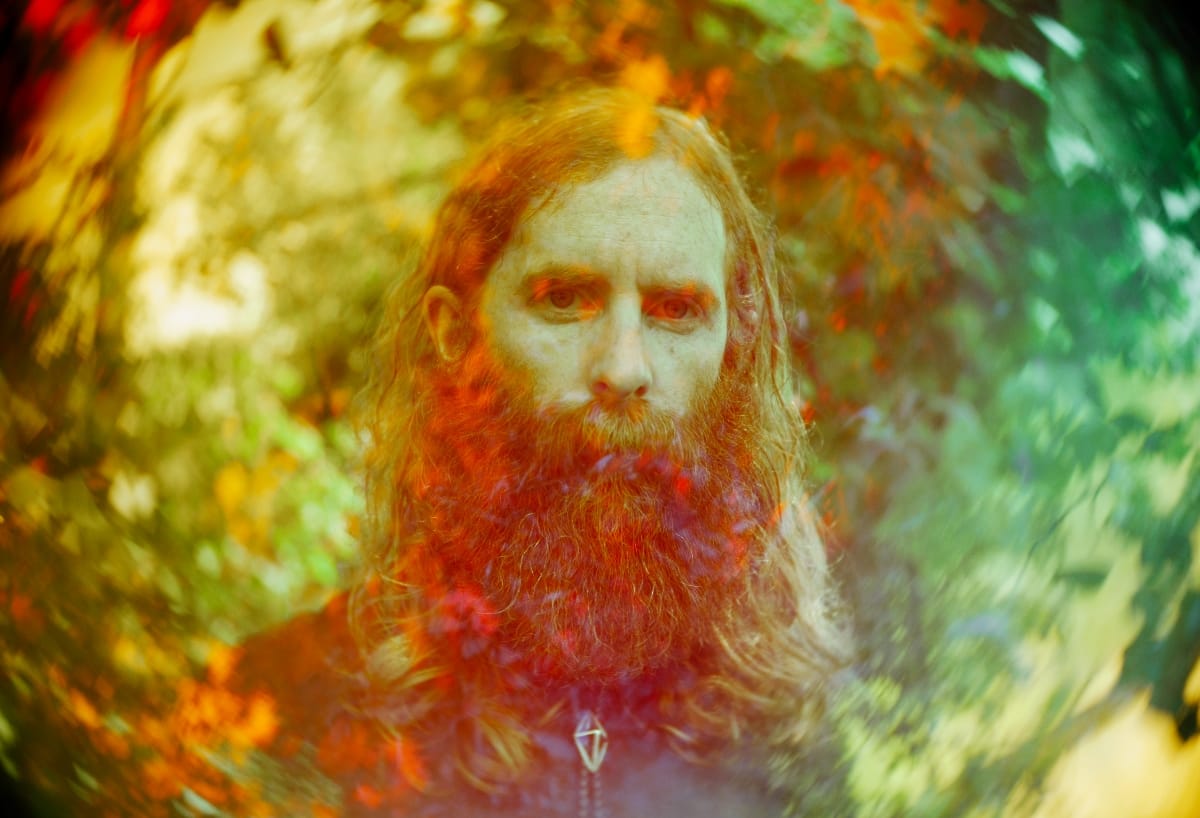
There was a quote from a book called Every Song Ever where author Ben Ratliff said, "genre is a construct for the purpose of commerce, not pleasure, and ultimately for the purpose of listening to less."
How does Zac qualify his music and feel about genre?
"Genre seems to me to be a limitation that one can place upon oneself. Personally, I'm always looking for whatever takes me to the most creatively expansive place. So sometimes that can mean working within a specific idiom. If I want to create some structures or constraints around the way that maybe I'm arranging a song, sometimes that gives me a bit of scaffolding to work with. Otherwise, you're just kind of floating in space. But I never want to feel hemmed in by defining myself by a genre, so I try to push back against that. I guess I'm always just curious about exploring where I haven't gone or what I haven't done. Usually, that comes from listening to other artists' work and engaging with it. It opens up my mind to the new thing that I feel excited about."
I was curious and asked Zac if some of those artists he was listening to ahead of this record were country music artists.
"Absolutely, I grew up in rural country—a middle-of-nowhere place in Southeastern Ohio. It's all country music all the time there. I mean, there was pop music and stuff like that, but I didn't really grow up exposed to a lot. I feel like I've kind of had to find that on my own. For a long time, I really didn't like country music at all because it was what my parents listened to, and it was what my dad liked . . . ugh. I couldn't stand it. Then I don't know what it is; eventually, my brain kind of came full circle and tuned back in on that, especially in the early phases of writing some of the songs for this album—it was all I wanted to listen to. I suppose that it was kind of a full circle experience for me and a mind-opening experience."
I've always had a kind of funny relationship with country music, especially with excessive pedal steel guitar, which can provide a bit too much melancholy. But I do enjoy modern country folk such as Gillian Welch and Dave Rawlings's Woodland album. They reference the likes of Guy Clark, which, after hearing, I went back looking at his documentary and came across a song, "Desperados Waiting for a Train," which is wonderful. I listen to all sorts of genres, but I wouldn't have listened to that ten years ago. Great songwriting comes through in the end for that genre.
"For sure. I perceive this in all kinds of genres, but maybe just because I grew up so close to it with country music, it seemed more apparent. Sometimes, for probably the purpose of marketing, the music ends up being really on the nose. There are artists who absolutely transcend that and make beautiful, resonant, meaningful works of art. But some of it feels like it's just dressed up as country as possible to kind of have these identity signifiers to make people be like, 'Yeah. That's me. I want to buy that thing.' I felt, even as a kid, that was something I saw through.
"It doesn't matter what genre it is; there's a lot of filler music product. That's fine, it's just that's not what gets me excited. It's almost trite to say, but if you listen to an old Hank Williams recording, it just cuts all the way down. I wasn't necessarily exposed to that traditional or older stuff as much when I was a kid, but I feel like I was absorbing the kind of subsequent interpretations or permutations of it. It was interesting for me, being older, to reflect on that."
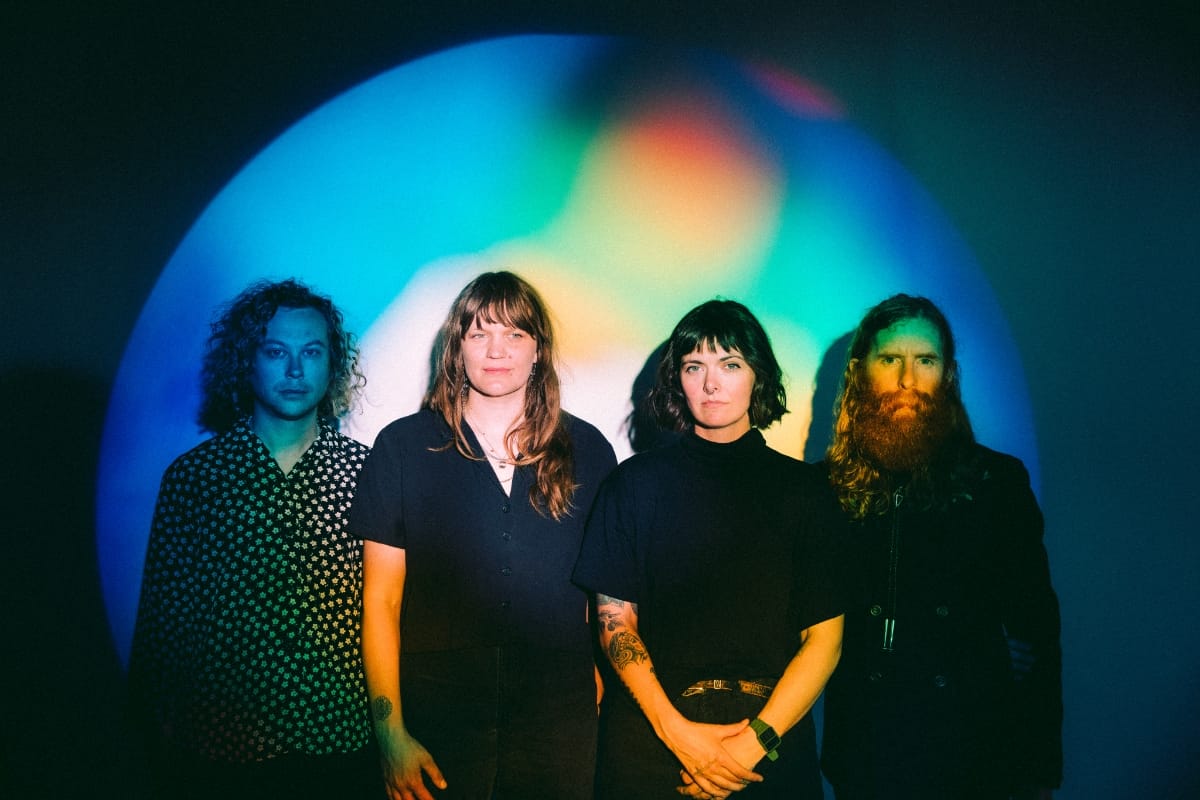
I found it fascinating that Zac mentioned the cultural identifier of country and western music. I believe that originated in the thirties with Hollywood introducing the singing cowboy, with Gene Autry. He was already a national radio show celebrity, having been broadcast as part of Chicago's WLS nationwide barn dances. Along with that whole cowboy attire and the influence of western movies, WSM radio in Nashville broadcast the Grand Ole Opry show, which helped catapult the city as the capital of country music while promoting a staged rural country look for performers. This had a huge significance on the divergence of folk and country music.
Folk in its own way evolved with the likes of Woody Guthrie and protest music with artists as Bob Dylan and Pete Seeger. There's a great quote I came across recently, where Seeger mentioned, "putting new words to old melody is what folk music drives on."
Zac nods, "For sure.
"I'll just speak for myself, but I do think that this probably connects to a broader cultural phenomenon, and that is that we don't often get to experience music that isn't commodified. We don't get to engage with music that isn't made to be a product. But really, on a deeper fundamental level, on whatever you want to call a spiritual level, music is far more ancient and more elemental than the music industry or even recorded music. The advent of recorded music is a relatively new experience and phenomenon, and our perspective has been completely overtaken by that. We only end up seeing it through that lens, as a song is this kind of packaged experience that's turned into a recording and then marketed as a product. But when you're thinking about folk music, I think that country music probably spins out of that.
"There are so many other things like that. I grew up engaged in the punk scene, and there's this fluid kind of continuum between all those points. Music is a vector of community and a means of socializing and connecting with others. That's the more essential kind of elemental thing about it. Sometimes it's hard to even see that because you get on your computer and see a bunch of songs on Spotify as products. So, you take for granted what this thing actually is."
I agreed with Zac. Here, we also have a rich heritage of traditional music and talented players. Speaking to older friends, they would talk about the best musicians that never played outside a kitchen!
"I don't know if we're uniquely warped, but America is a very capitalist, ‘everything's commodified’ kind of culture. There are so many things that transcend and push against that, but it may take a little bit more digging because that is the dominant culture here. That's my experience of it, at least."
I asked Zac, after releasing the Highwalllow & Supermoon Songs album, if he enjoys the release phase of promoting and talking about his music.
Zac giggled a little. "I mean, it's fun. To me, the thing about creativity is that the circle is complete when it reaches people. It's as if I take it outside of myself, putting out music; it's like when I read a book or something—it's going to pass through my lens of experience. There are words on the page, but I will create my own meaning through my set of experiences. In some ways, what is exciting about being on the other side of that and engaging in the act of creativity is that I work really hard on all this stuff and obsess over it, and then put it out into the world. Then, other people will create their own points of reference through their own lens, and that's what's cool about it. That part is exciting, to finally get it out there and get it out of my head, and to allow it to take on its own life. I sometimes feel a bit exposed when going through the release process. It's just like what I want to say is generally encapsulated by the art, and I sometimes feel like my rambling on about it just obscures that. It's just going to get in the way." He chuckled. "Although I'll ramble for days!"
When you say you obsess over it, when is it done? Are you still thinking about it? Or have you already moved on mentally to the next project?
"I really try to close that door because it takes a lot out of me. I can be very self-critical of the work. At some point, you just have to move on. It's like you're tinkering, tooling, and you're trying to do it. Sometimes it's perfect in the way that it's not perfect, and it's a lot easier for me to see that in other people's art. I love that—the way a voice cracks or how a guitar is a little bit out of tune. That's the portal for me to engage and be excited about this thing. But when you're the person making it, you tend to want to exaggerate or focus on those little details that actually might be really cool. But my own kind of perspective is warped by having some ideal that other people don't share or have a point of reference for."
That might be something Zac sees more of as he’s been involved in a small bit of producing other people's records. Is that something you enjoy, Zac?
"I do. The funny thing about producing is that I can see all the little pitfalls and traps. I can empathize with what it feels like to be on that side when you're the person behind the microphone singing the song, because I have personally more experience doing that than I do producing. I relate to how it feels. My ideal would be to guide someone through the process of feeling like their creative expression is as realized as it can be. When that happens, I feel honored and excited. But it's funny because all of those pitfalls and things that I can recognize when somebody else is doing it, I can intellectually know that for myself, but still somehow be powerless to not dive straight headfirst into it when I'm the one in the seat behind the microphone. It's like, ‘Ah, here I go. I'm doing it again.’ I know better but I just can't."
Zac has also formed a producer relationship with legendary figure Mike Mogis (from Bright Eyes), who co-mixed Highwalllow & Supermoon Songs. I asked Zac how that relationship blossomed over the last couple of albums and how its helped him.
"Working with Mike has just been a privilege and a joy. Saintseneca first started working with him on Dark Arc, so we would have been recording with him probably in 2012 or 2013, which is hard to imagine. Mike comes from a similar background, being self-taught and DIY. He has an amazing ear as an engineer and is a freak musician. When we started working with him, my friend Glenn Davis and I had worked on these recordings and brought them to Mike. I felt vulnerable because these are homemade things. Having someone of Mike's status level treat those things with care and respect was very validating for me. And he's never been condescending like, ‘Well, you didn't record this in the million-dollar studio, so therefore, it sucks,’ or whatever. He's just like, ‘You’re getting a different thing, and I think that is special and interesting.’ That's one of the things that's always brought me back, is that I felt like he understood where I was coming from and appreciated some of that weirdness."
I followed up to try to understand the producer/musician relationship, and asked if Mogis was a bit more standoffish, letting Zac do his own thing, and happy to just guide, or if he was more hands-on.
"It's both, you know? When I’m engaging in that process, I'm inviting his perspective. That's how it is with all the people I invite into the space of collaboration: I want to know their opinion because I trust them and respect them as individuals and musicians. I know that I don't know it all, and I can't see all the places that it could go. There are times when Mike's pushed more, where he's just like, 'No. I think you should do this.' It’s the same for Glenn and Steve Ciolek, another person in an exterior production role on this. I want to be sensitive and open because they'll let me know when it's good enough, and they'll let me know when to keep going. I might have an intuitive sense of that myself, but it can be very helpful for me to have that external voice as well."
What about going out on the road and playing those songs live? How does that feel?
"I'm always excited to share the music with people in that space as well. It's a different set of concerns, so I'm happy to let those spaces function quite differently. It's the same for me when I'm listening to music and just vibing out on headphones versus going and watching a band live. I like it when I see people create interpretations of their music, and I do a similar thing with this project. As we play the songs, it's pretty dynamic. Maybe we'll try this one differently, or maybe we'll jam on this part, or maybe we'll cut this off here. That's cool, and that's kind of how I like to approach offering the songs in a live context."
I wondered if Zac and Saintseneca can just let go when playing live, or if he finds himself still obsessing over his music.
"Oh, I'm getting better at that," he smiled. "The thing is, live is chaotic, it's dynamic. You have to embrace that and ride with it, see where it takes you. When I was younger, as someone who may gravitate toward that perfectionist tendency, I brought that into live music, and that made me miserable. There were times when I wouldn’t allow myself to have fun because I was getting hung up on some little thing. I'm trying to have more fun now. That's a work in progress."
The humour and fun come across in the album; it's not all melancholy.
I asked Zac if there are any current artists around Columbus, Ohio, or any other current artists that he is particularly keen on.
"This one's maybe a little bit self-interested, but Superviolet is my friend Steve Ciolek who is an amazing songwriter. I got to help him work on his record and he helped me work on my record. But we've worked together forever, and I love Steve. My bandmates are all in another band called Mukiss, and that's Caeleigh Featherstone's project. She writes great songs and just put out a collection of music that is really sweet. Another band that I love is called Natural Sway. That is my friend Ryan's project, his songs sound iconic. You hear them, and you're like, ‘Really? You wrote that? Are you sure? I thought that always existed.’ Those are some buds that I have a lot of respect for, and people should listen to."
Check out more like this:
 The TonearmSam Bradley
The TonearmSam Bradley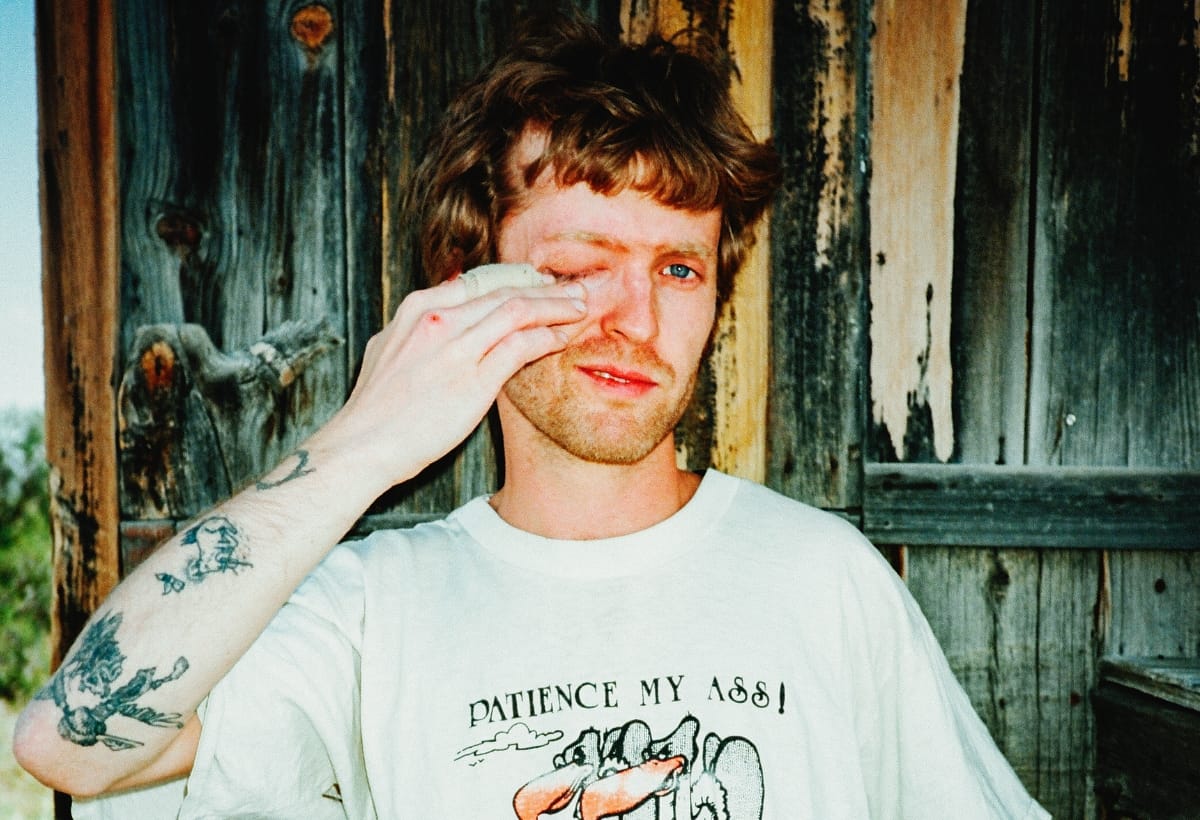
 The TonearmDamien Joyce
The TonearmDamien Joyce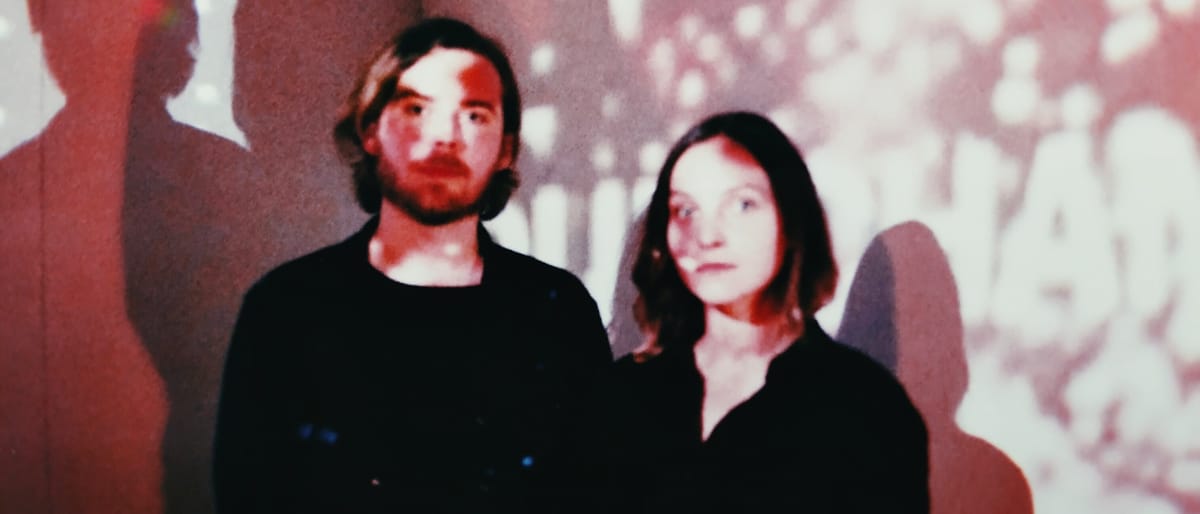


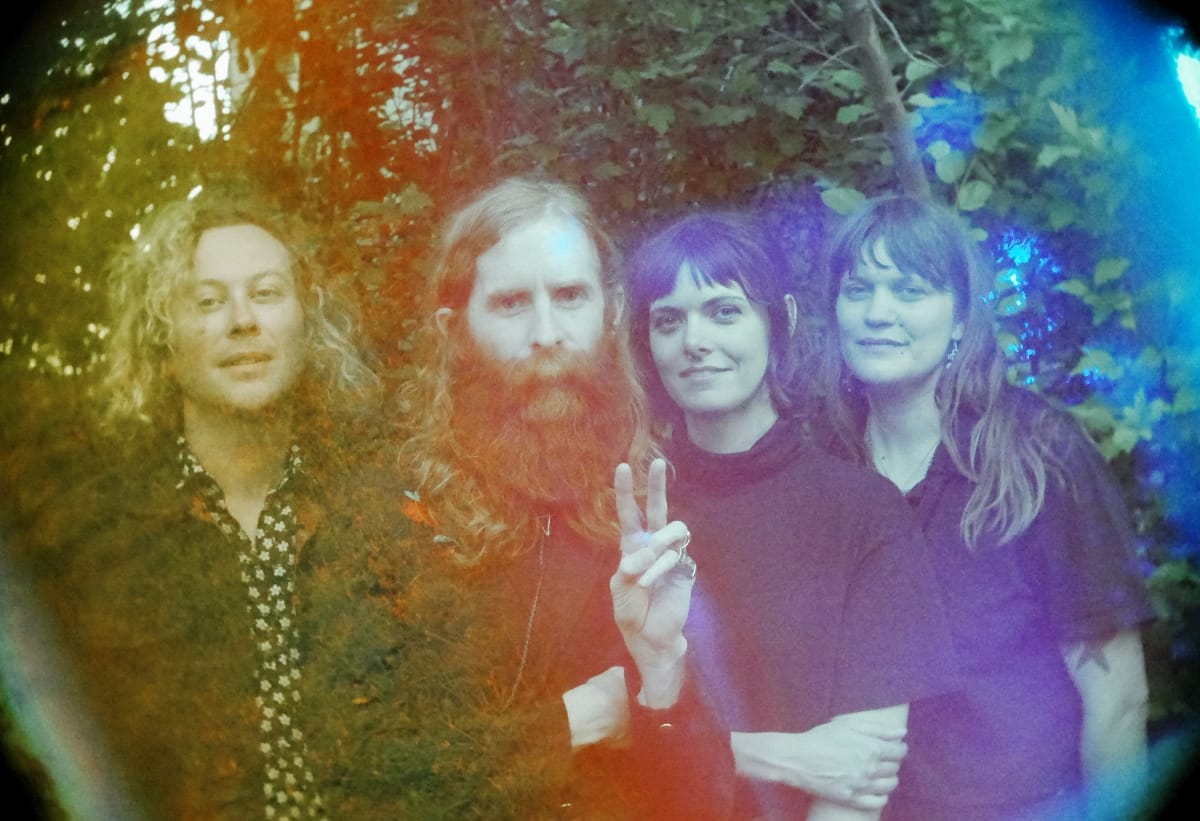

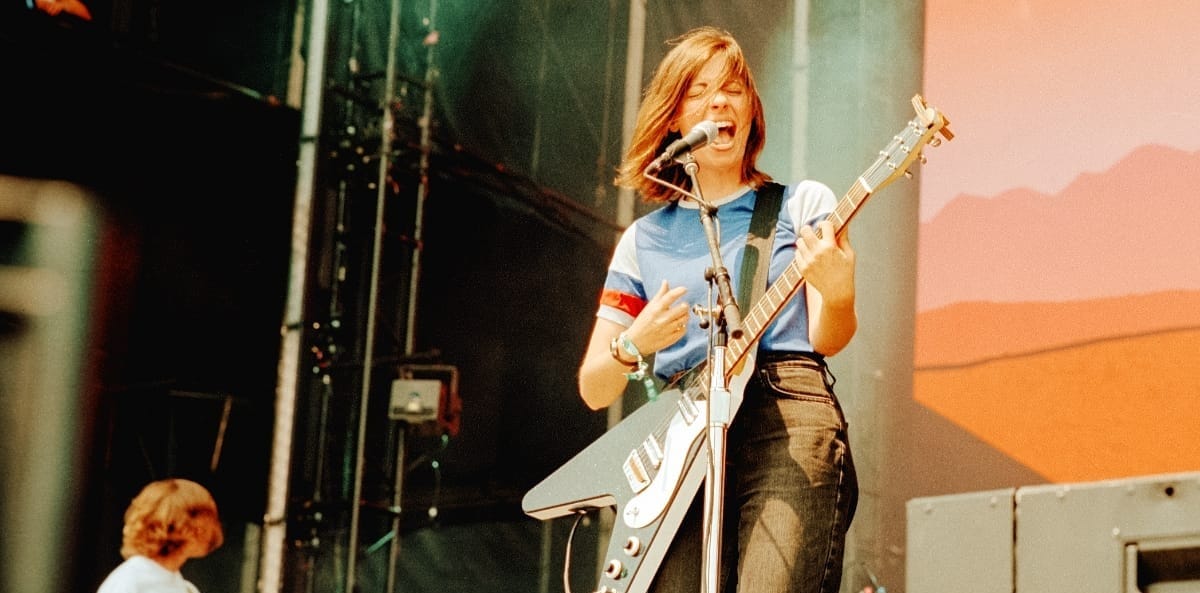
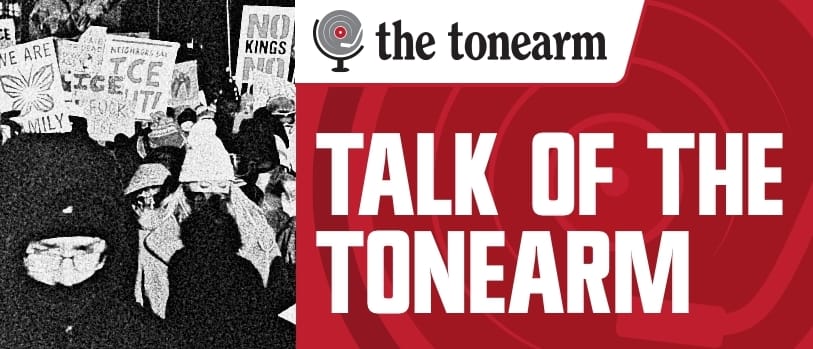
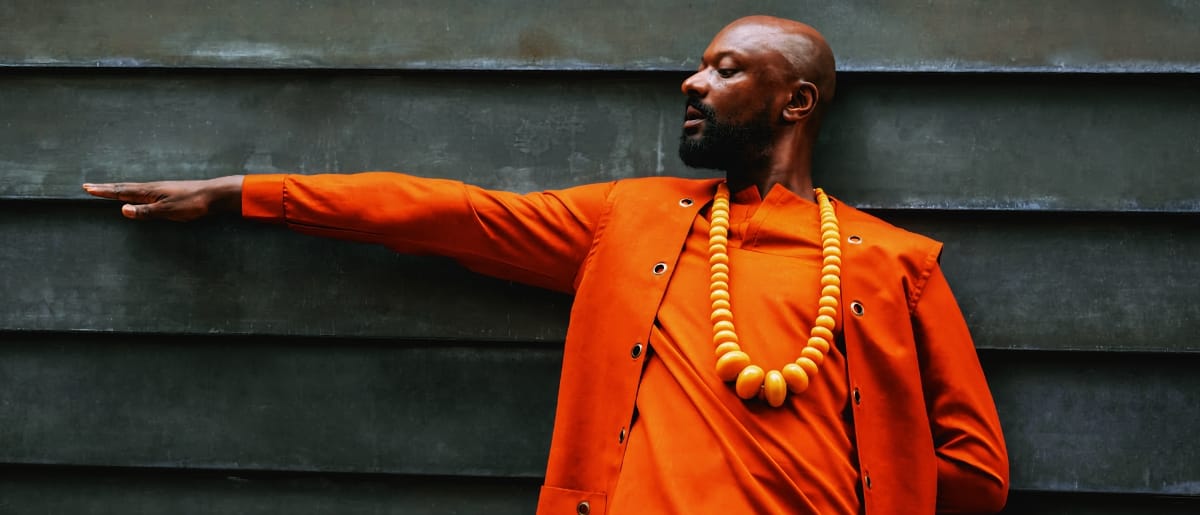
Comments